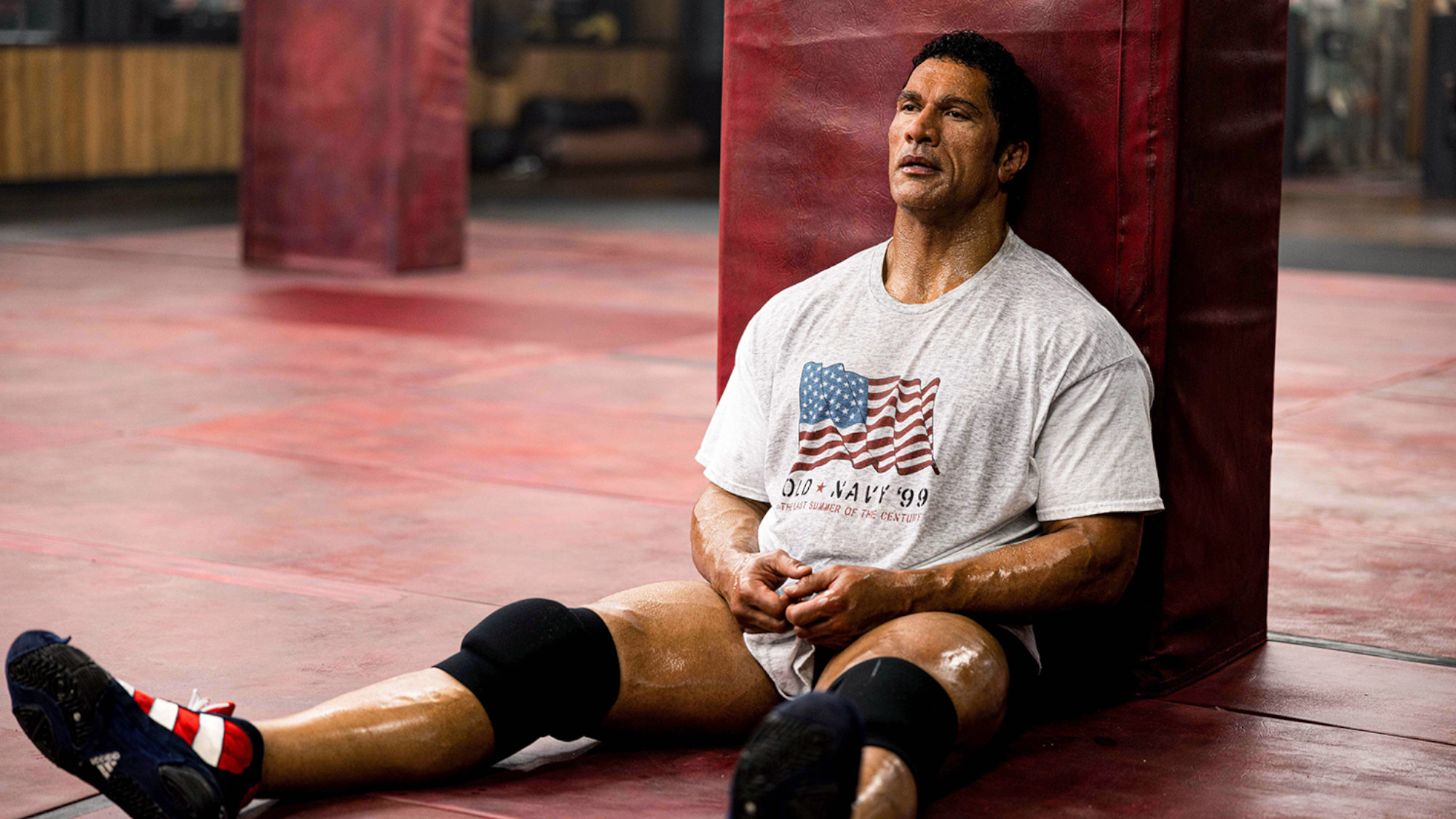Film reviews: Anemone and The Smashing Machine
A recluse receives an unwelcome guest and a pioneering UFC fighter battles addiction

A free daily email with the biggest news stories of the day – and the best features from TheWeek.com
You are now subscribed
Your newsletter sign-up was successful
Anemone
Directed by Ronan Day-Lewis (R)
★★
“It’s touching that Daniel Day-Lewis came out of retirement to launch his son’s movie career,” said Owen Gleiberman in Variety. Alas, the project that the pair made together turns out to be “a dud of a movie—aridly pretentious and static, with too much self-conscious art photography and not enough drama.” As great as the 68-year-old actor often has been, he’s “not especially memorable” here, and though 27-year-old first-time director Ronan Day-Lewis “shows flashes of talent,” Anemone, for most of its 125 minutes, “just sits there.”
The Week
Escape your echo chamber. Get the facts behind the news, plus analysis from multiple perspectives.

Sign up for The Week's Free Newsletters
From our morning news briefing to a weekly Good News Newsletter, get the best of The Week delivered directly to your inbox.
From our morning news briefing to a weekly Good News Newsletter, get the best of The Week delivered directly to your inbox.
It arrives eight years after Daniel’s previous film, Phantom Thread, and the three-time Oscar winner’s magnetic intensity “remains undimmed,” said David Rooney in The Hollywood Reporter. He plays Ray Stoker, a traumatized former British soldier who has been living alone in a remote cabin for 20 years when his brother seeks his help with a troubled family scion. But the role of Ray’s brother is “mostly reactive,” putting co-star Sean Bean at a disadvantage, and the screenplay, co-written by the film’s director and star, is built around a few “chewy monologues” that feel stagy.
Two of Day-Lewis’ monologues, at least, prove “mesmerizing,” said Adrian Horton in The Guardian. But the film’s peaks are “quickly swallowed again by the booming sense of import.” Still, the younger Day-Lewis could well evolve into a solid filmmaker. “Anemone certainly looks serious,” complete with “swirling skies” and “eerie montages” that suggest “weighty themes and big emotions.”
The Smashing Machine
Directed by Benny Safdie (R)
★★★
A free daily email with the biggest news stories of the day – and the best features from TheWeek.com
“The Smashing Machine is satisfying as much for what it doesn’t do as for what it does,” said Stephanie Zacharek in Time. Dwayne Johnson stars in the new biopic, playing former UFC champ Mark Kerr. And though Kerr’s cage career traced a familiar arc from early success to addiction and a comeback, director Benny Safdie “doesn’t try to apply any Rocky-style narrative formulas.” Johnson’s Kerr is simply a guy who takes life as it comes, and he and the film’s other characters “feel lived-in, not written, with flaws and attributes that chime with things we see in our family, our friends, ourselves.”
Johnson, who was a pro wrestling star before beginning his film career two decades ago, is “by far the best thing in the movie,” said Bilge Ebiri in NYMag.com. “Actually, he’s kind of the only thing in the movie,” because so little attention is devoted even to Kerr’s up-and-down relationship with his girlfriend and wife that Emily Blunt can’t flesh out the character. Safdie, by trying to avoid sports biopic clichés, wound up with a film that’s “too understated and glancing for its own good.”
You might expect plenty of adrenaline-fueled action in a UFC biopic from a director who co-created Uncut Gems with his older brother, said Trace Sauveur in Paste. Instead, Safdie has given us “a quiet drama about a gentle giant.” A 2002 documentary about Kerr, also titled The Smashing Machine, was “somehow more potent.”
-
 6 of the world’s most accessible destinations
6 of the world’s most accessible destinationsThe Week Recommends Experience all of Berlin, Singapore and Sydney
-
 How the FCC’s ‘equal time’ rule works
How the FCC’s ‘equal time’ rule worksIn the Spotlight The law is at the heart of the Colbert-CBS conflict
-
 What is the endgame in the DHS shutdown?
What is the endgame in the DHS shutdown?Today’s Big Question Democrats want to rein in ICE’s immigration crackdown
-
 Bad Bunny’s Super Bowl: A win for unity
Bad Bunny’s Super Bowl: A win for unityFeature The global superstar's halftime show was a celebration for everyone to enjoy
-
 Book reviews: ‘Bonfire of the Murdochs’ and ‘The Typewriter and the Guillotine’
Book reviews: ‘Bonfire of the Murdochs’ and ‘The Typewriter and the Guillotine’Feature New insights into the Murdoch family’s turmoil and a renowned journalist’s time in pre-World War II Paris
-
 Microdramas are booming
Microdramas are boomingUnder the radar Scroll to watch a whole movie
-
 Are Hollywood ‘showmances’ losing their shine?
Are Hollywood ‘showmances’ losing their shine?In The Spotlight Teasing real-life romance between movie leads is an old Tinseltown publicity trick but modern audiences may have had enough
-
 6 exquisite homes with vast acreage
6 exquisite homes with vast acreageFeature Featuring an off-the-grid contemporary home in New Mexico and lakefront farmhouse in Massachusetts
-
 Film reviews: ‘Wuthering Heights,’ ‘Good Luck, Have Fun, Don’t Die,’ and ‘Sirat’
Film reviews: ‘Wuthering Heights,’ ‘Good Luck, Have Fun, Don’t Die,’ and ‘Sirat’Feature An inconvenient love torments a would-be couple, a gonzo time traveler seeks to save humanity from AI, and a father’s desperate search goes deeply sideways
-
 The biggest box office flops of the 21st century
The biggest box office flops of the 21st centuryin depth Unnecessary remakes and turgid, expensive CGI-fests highlight this list of these most notorious box-office losers
-
 A thrilling foodie city in northern Japan
A thrilling foodie city in northern JapanThe Week Recommends The food scene here is ‘unspoilt’ and ‘fun’